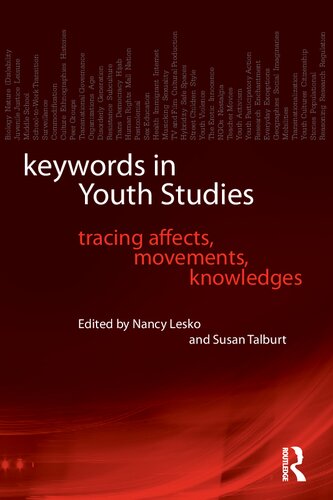

Most ebook files are in PDF format, so you can easily read them using various software such as Foxit Reader or directly on the Google Chrome browser.
Some ebook files are released by publishers in other formats such as .awz, .mobi, .epub, .fb2, etc. You may need to install specific software to read these formats on mobile/PC, such as Calibre.
Please read the tutorial at this link: https://ebookbell.com/faq
We offer FREE conversion to the popular formats you request; however, this may take some time. Therefore, right after payment, please email us, and we will try to provide the service as quickly as possible.
For some exceptional file formats or broken links (if any), please refrain from opening any disputes. Instead, email us first, and we will try to assist within a maximum of 6 hours.
EbookBell Team

4.4
52 reviewsWith recent attention to issues such as youth social exclusion, poverty, school underachievement, school violence, gang activity, sexuality, and youth’s interactions with media and the internet, youth studies has emerged as a significant interdisciplinary field. It has moved beyond its roots in subcultural studies to encompass a diverse array of disciplines, subfields, and theoretical orientations. Yet no volume exists that systematically presents and puts into dialogue the field’s areas of focus and approaches to research.
As a unique blend of reference guide, conceptual dictionary, and critical assessment, Keywords in Youth Studies presents and historicizes the "state of the field." It offers theoretically-informed analysis of key concepts, and points to possibilities for youth studies’ reconstruction. Contributors include internationally-renowned field experts who trace the origins, movements, and uses and meanings of "keywords" such as resistance, youth violence, surveillance, and more. The blending of section essays with focused keywords offers beginning and advanced readers multiple points of entry into the text and connections across concepts. A must-read for graduate students, faculty, and researchers across a range of disciplines, this extraordinary new book promotes new interdisciplinary approaches to youth research and advocacy.